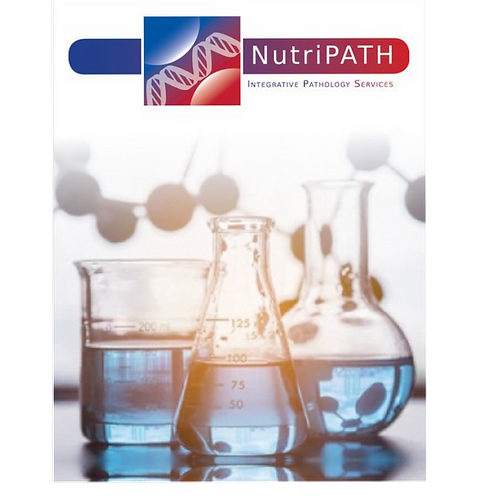

Faecal Calprotectin
(inflammatory marker
in GI tract)
Method - Stool
Take your sample in the comfort of your own home and send via pre-paid courier to the lab.
Test Results
2-3 weeks
Sample Report
Items tested
-
The 4-Pillar Gut Profile offers a comprehensive investigation of the gut microbiome through four key diagnostic tests, designed to take the guesswork out of identifying systemic imbalances and help create a structured correction plan.
-
-
Pillar 1: Complete Microbiome Mapping
-
This stool-based test uses quantitative PCR (qPCR) to screen for a wide range of microorganisms (bacteria, viruses, fungi, parasites) and provides valuable insights into gut health, helping identify and correct dysbiosis.
-
-
Pillar 2: IgG96 Food Sensitivity Testing
-
Identifying food sensitivities strengthens mucosal immunity. By pinpointing offending foods, patients can address symptoms caused by immune responses to specific foods.
-
-
Pillar 3: Intestinal Permeability (Leaky Gut)
-
Testing for leaky gut identifies nutrient deficiencies linked to microbiome imbalances, supporting vital biological functions through the replenishment of essential vitamins.
-
-
Pillar 4: SIBO Lactulose Breath Test
-
This test measures hydrogen and methane levels in the small intestine, helping detect bacterial overgrowth that can lead to various digestive issues.
-
-
Together, these four pillars provide a robust approach to gut health and overall well-being.

The Calprotectin Stool Test, helps detect inflammation in your intestines. This type of inflammation can happen due to bacterial infections or in conditions like inflammatory bowel disease (IBD). Practitioners use this test to figure out if your symptoms are due to IBD (inflammatory bowel disease) or something less serious, and it can also help track how active the disease is over time.
Testing for calprotectin in your stool is a helpful way to decide if someone might need an endoscopy when IBD is suspected. The main conditions that cause higher calprotectin levels include infections in the colon, Crohn’s disease, ulcerative colitis, and sometimes cancer. Basically, if your calprotectin levels are high, it’s a sign that there’s likely inflammation in your digestive system.
You can order the calprotectin test on its own, or as part of a more detailed digestive health check (CDSA panel) or CMM (Comprehensive Microbiome Map) that looks at other gut health markers too.
Common Symptoms Associated with Elevated Calprotectin:
-
Bloody or watery diarrhoea
-
Abdominal cramps or pain
-
Fever
-
Weight loss
-
Rectal bleeding
-
Weakness
-
Diarrhoea
-
Bloating
-
Irritable Bowel Syndrome
-
Inflammatory Bowel Disease – Crohn’s, Ulcerative colitis
-
Cancer
To book your consultation, click here.
